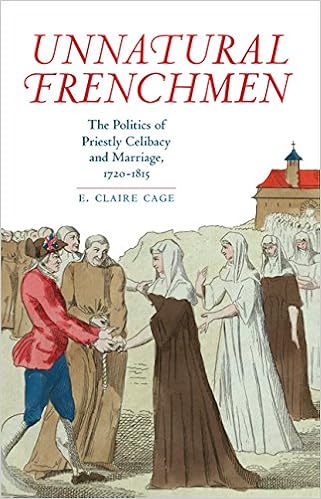
Cage shows how many of the most important topics treated in recent French historiography (changing attitudes about gender, the eighteenth-century separation of the public and private spheres, and emerging discourses on rights) contributed to the animated discussion about clerical celibacy in the Age of Revolution. Her scholarship is impeccable―Cage has an excellent command of the sources, from normative literature to records of the lived experiences of ordinary people.
In, Unnatural Frenchmen, Claire Cage covers the broad history of celibacy in an introductory chapter, and then moves on to a detailed and fascinating account of how debates over priestly marriage shaped attitudes toward the clergy, the church, and the meaning of citizenship in the Enlightenment and the French Revolution.... Cage avoids drawing any easy lessons from her research, but the conflicts she treats clearly resonate in a contemporary world in which celibacy remains a fraught issue. In substance and tone, Cage's book argues for approaching this issue in a spirit of tolerance and civility, traits not always on display in the revolutionary era, or now.In Enlightenment and revolutionary France, new and pressing arguments emerged in the long debate over clerical celibacy. Appeals for the abolition of celibacy were couched primarily in the language of nature, social utility, and the patrie. The attack only intensified after the legalization of priestly marriage during the Revolution, as marriage and procreation were considered patriotic duties. Some radical revolutionaries who saw celibacy as a crime against nature and the nation aggressively promoted clerical marriage by threatening unmarried priests with deportation, imprisonment, and even death. After the Revolution, political and religious authorities responded to the vexing problem of reconciling the existence of several thousand married French priests with the formal reestablishment of Roman Catholicism and clerical celibacy.
Unnatural Frenchmen examines how this extremely divisive issue shaped religious politics, the lived experience of French clerics, and gendered citizenship. Drawing on a wide base of printed and archival material, including thousands of letters that married priests wrote to the pope, historian Claire Cage highlights individual as well as ideological struggles. Unnatural Frenchmen provides important insights into how conflicts over priestly celibacy and marriage have shaped the relat
No comments:
Post a Comment